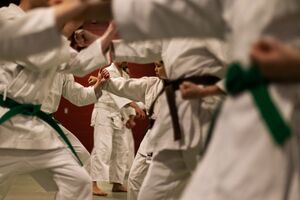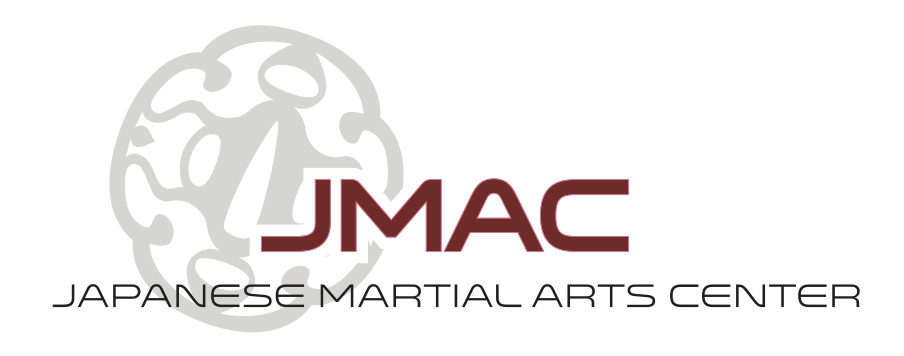The 3 Sections of Karate Training

Want to study karate in Ann Arbor?
What can you expect to learn?
Everything you’ll learn in karate can be sorted into three categories: kihon, kata, and kumite.
Kihon
Kihon means “basics,” or “fundamentals,” and includes stances, strikes, punches, kicks, and blocks. These are fundamental to your success as a martial artist. By repeating these elements, you’ll learn correct body posture, breathing techniques, and build balance, stability, and concentration. Kihon also helps foster the correct spirit and attitude you’ll need to succeed. When you start karate, this is what you’ll begin learning, but Kihon training never ends! All martial artists practice elements of kihon while training. Advanced martial artists will often return to the basics to see how they can improve, in fact, it’s often said that “there are no such things as advanced techniques, only basic techniques done in different applications.”
Kata
Kata means “form.” These are prearranged movements that simulate a battle between you and one or more imaginary opponents. Kata are meant to train your form and flow as you move from one stance to another. Think of it like a choreographed dance or symphony. Kata are taught in stages and must be memorized. Kata are useful for practicing fighting movements, developing muscle memory, and training your mind and body for discipline and efficiency.
Kumite
Kumite means “sparring.” When you and another martial artist go up against each other to gain experience and test your skill, that’s Kumite. Kumite includes both free practice and structured fighting drills. Structured kumite includes drills like Ippon kumite – where one person steps in for a high punch and the other responds with a high block.
Free practice kumite in Goju-Ryu karate isn’t about matching strength or overpowering your opponent - rather it’s about deflecting the attack intelligently. Because Goju-Ryu uses hard and soft techniques, you can meet your opponent’s attack, whether it be hard or soft, with the opposite. You can wear protective gear so you can strike with power rather than holding back. Free practice Kumite is also used in competitions. See kumite in action!
At JMAC, you don’t have to spar if you don’t feel ready. We only encourage sparring if you feel confident and we think you’re ready!
Call or Email JMAC Today for Karate in Ann Arbor
“JMAC changed my life! The instructors are incredible - both as teachers and as people. Other students are supportive and fun. I couldn't ask for a better training atmosphere.”
If you’d like to start studying karate in Ann Arbor, fill out our contact form or give us a call at (734) 720-0330 today.
